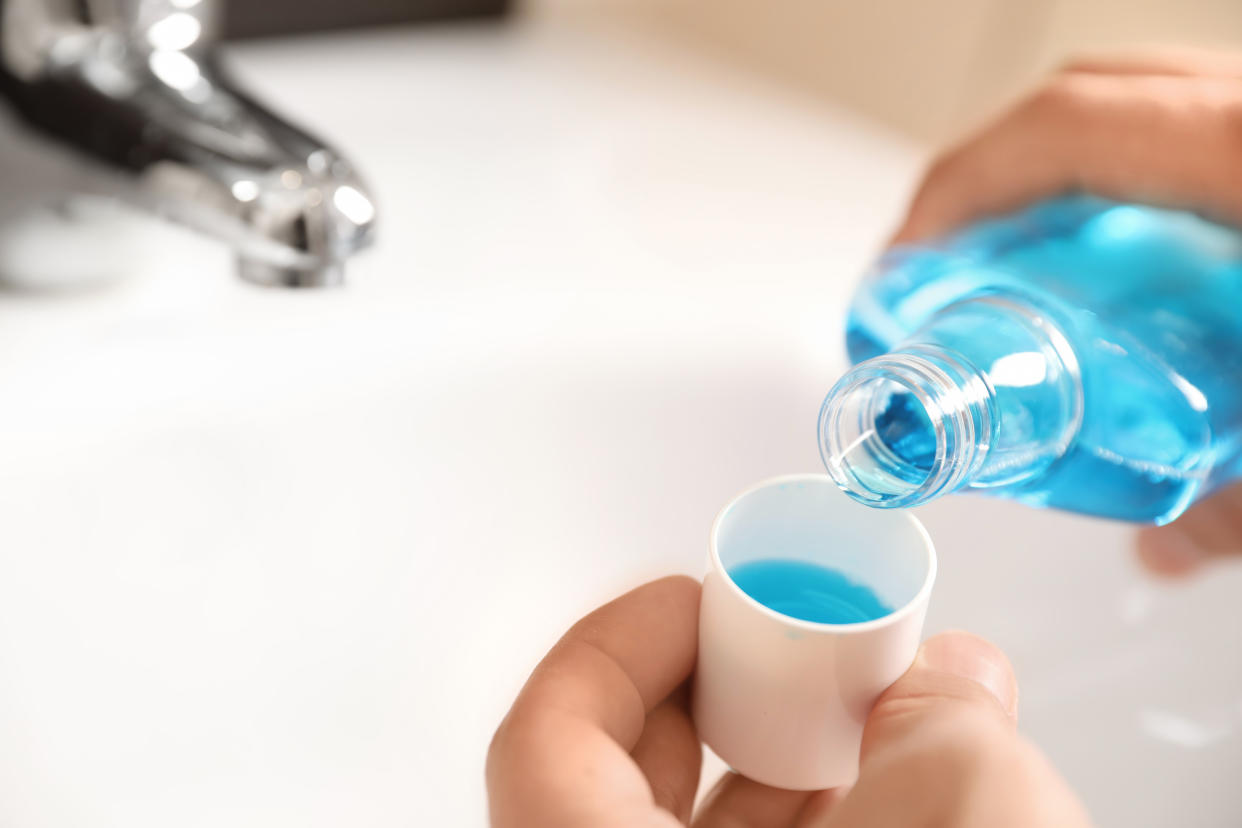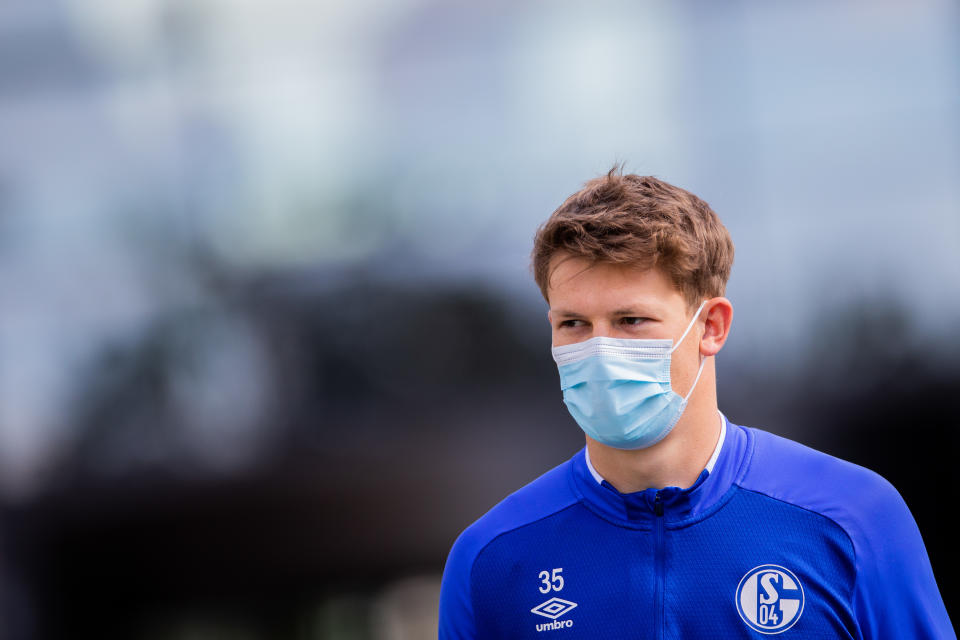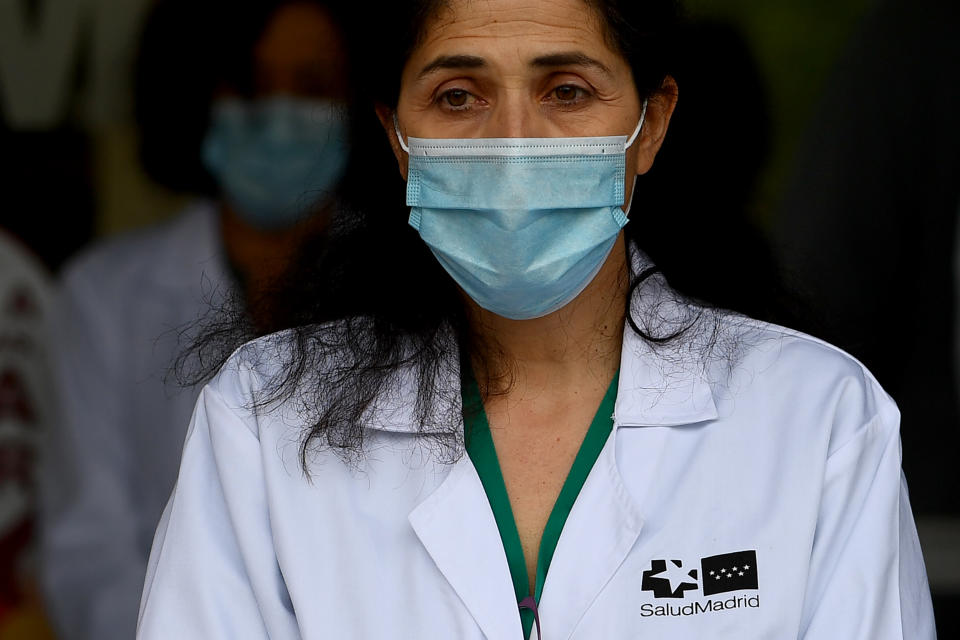Coronavirus: Scientists want to investigate if mouthwash kills the infection

Scientists from Cardiff University are calling for research into whether high-street mouthwashes could reduce the spread of the coronavirus.
The virus is surrounded by a fatty membrane. The scientists have argued the membranes of similar pathogens were disrupted when exposed to ingredients commonly found in mouthwashes, like ethanol, povidone-iodine and cetylpyridinium.
Gargling with mouthwash could inactivate the coronavirus in the throat, helping to prevent it spreading via coughs and sneezes, they added.
Although it is unclear whether this would be the case, the team argued there has been “no discussion” on the potential role of mouthwash in combatting the outbreak.
Early research suggests the coronavirus is mild in four out of five cases, however, it can trigger a respiratory disease called COVID-19.

Coronavirus: ‘Urgent need’ to test ‘potential’ of mouthwash
“Safe use of mouthwash – as in gargling – has so far not been considered by public health bodies in the UK,” said Professor Valerie O’Donnell, lead author of a paper on the subject.
“In test tube experiments and limited clinical studies, some mouthwashes contain enough of known virucidal ingredients to effectively target lipids in similar viruses.
Latest coronavirus news, updates and advice
Live: Follow all the latest updates from the UK and around the world
Fact-checker: The number of COVID-19 cases in your local area
Explained: Symptoms, latest advice and how it compares to the flu
“What we don’t know yet is whether existing mouthwashes are active against the lipid membrane of [the coronavirus].
“Our review of the literature suggests research is needed as a matter of urgency to determine its potential for use against this new virus.
“This is an under-researched area of major clinical need and we hope research projects will be quickly mobilised to further evaluate this”.
Coronavirus: ‘Relatively dilute ethanol’ could be ‘highly effective’
Studies have suggested the coronavirus replicates in the salivary glands and throat, the scientists wrote in the journal Function.
They argued the pathogen is “highly sensitive to agents that disrupt lipid bio-membranes”.
The circulating coronavirus is one of seven strains of a virus class that are known to infect humans.
Other strains cause everything from the common cold to severe acute respiratory syndrome (Sars), which killed 774 people during its 2002/3 outbreak.
The scientists argued past research has demonstrated “inactivation of coronaviruses by biocidal agents”.
Mouthwashes “vary widely in composition”, with an ethanol content that typically ranges from 14% to 27%.
Ethanol – the chemical compound in alcohol – has been shown to kill fellow coronaviruses severa acute respiratory syndrome (Sars) and Middle East respiratory syndrome (Mers) at concentrations of 60% or higher, like in hand sanitisers.
The scientists set out to uncover the effectiveness of oral-based ethanol solutions at “dampening or reducing viral load”.
They concluded there is a “paucity” of data on whether lower, and therefore less toxic, ethanol concentrations inactivate viruses with a fatty membrane.
Most studies “simply reiterate the use of higher concentrations”.
One 2007 paper found 20% ethanol “completely inactivated three viruses” in the laboratory.
In 2017, scientists found exposing a coronavirus to 34% ethanol “completely prevented subsequent viral replication”.
Research has also suggested low-concentration ethanol can kill off viruses like herpes and flu when combined with anti-viral essential oils.
“These studies indicate that relatively dilute ethanol will be highly effective against enveloped viruses,” wrote the Cardiff scientists.
“However, there is an urgent need to determine how coronaviruses are impacted by dilute alcohol under biologically-relevant conditions (mucosa, mouth etc), and whether in combination with non-toxic, membrane-disrupting agents, oral inactivation of [the coronavirus] could be achieved”.
They argued existing mouthwashes – and those specifically-tailored to combat the infection – could be tested in the laboratory, clinical trials and at-home settings.
“We highlight that already published research on other enveloped viruses, including [other strains of] coronaviruses, directly supports the idea that further research is needed on whether oral rinsing could be considered as a potential way to reduce transmission of [the coronavirus],” wrote the scientists.
The team stressed, however, it is unclear whether mouthwashes would have any effect. Safety and length of exposure also need to be investigated.
While we await potential studies, they insisted the public continue to adhere to official guidance on how to ward off infection.
“People should continue to follow the preventive measures issued by the UK government, including washing hands frequently and maintaining social distance,” said Prof O’Donnell.

What is the coronavirus?
Since the coronavirus outbreak was identified, more than 4.3 million cases have been confirmed worldwide, according to Johns Hopkins University.
Of these cases, over 1.5 million are known to have “recovered”.
Globally, the death toll has exceeded 297,400.
The coronavirus mainly spreads face to face via infected droplets expelled in a cough or sneeze.
There is also evidence it is transmitted in faeces and can survive on surfaces.
Symptoms include fever, cough and slight breathlessness.
The coronavirus has no “set” treatment, with most patients naturally fighting off the infection.
Those requiring hospitalisation are given “supportive care”, like ventilation, while their immune system gets to work.




